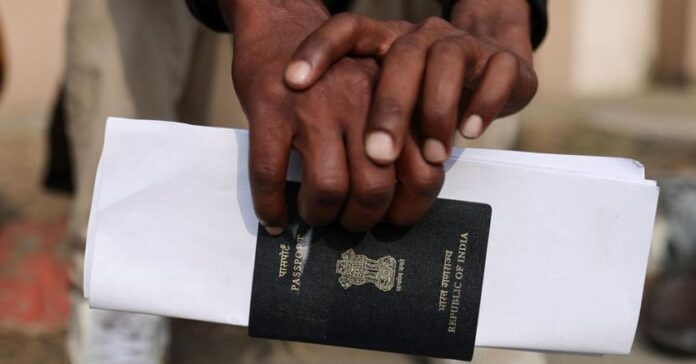At 11 in the morning, in front of the entrance to the building where candidate registration takes place there is a long queue of men between 20 and 45 years old. They are crouched on the ground, in silence, their eyes lowered. Some are wrapped in a cheap shawl, others in the blanket they slept in. In front of them, sitting on a chair, a policeman sternly observes them holding a lathi, the classic stick supplied to the Indian security forces.
«On average – explains Sunil – I work 20 days a month for Larsen & Toubro (an Indian infrastructure giant that capitalizes 54 billion euros, ed.) and I earn 900 rupees a day», just under 10 euros. Like all the would-be emigrants we met, Sunil has never set foot outside India. Like a significant part of our sample, he has never even crossed the borders of Haryana, the small state in which he was born. None of them know where Israel is, which countries it borders or how far it is from home. The only figure known to everyone is the salary: 137 thousand rupees a month. Even taking into account the deductions, they are four, five, for some even six times the current remuneration.
Enough to overshadow a series of other considerations, such as the war (“they told us we will be safe”), the costs of food, accommodation and transportation (“I don’t know, I don’t know, I don’t know”) and the insurance (questioning looks).
Despite their obvious vulnerability, the men who responded to the Israeli appeal are not on the margins of society. They are not among the multitudes without either a job or a realistic plan to find one. But once their income is divided by the number of dependent family members, they inevitably slide towards the lowest rung of the Indian social pyramid, where 49.7% of the population lives on less than 1,500 dollars a year.
They are people who, having failed to get on the lifeboat of the formal economy, are exposed to the rough waves of the era in which they live. «A Bihari – explains Naresh Kumar, a 32-year-old electrician, referring to the inhabitants of one of the poorest states in India – does for 800 rupees what I do for a thousand». They feel, much more than the middle class on which the eyes of the world are focused, the increases in the prices of basic necessities. And they are the first victims of the State’s failures – schools, healthcare – which end up draining precious resources from their tiny family budgets. This is why they leave without knowing where they are going, because “every parent – explains Sunil – dreams of a good education and a safe life for their children”.




































